This film will be available on Blu-ray as a “Limited Edition” from Eureka Entertainment on October 28th.
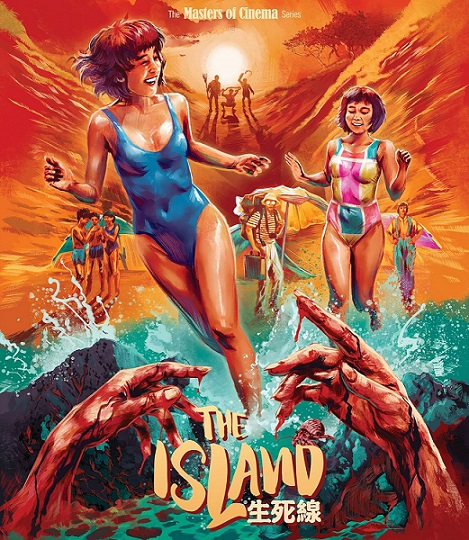
When many think of the Hong Kong film industry, they naturally think of industry giants like Jackie Chan, or filmmakers in the vein of John Woo and Tsui Hark, who specialized in high energy action and martial arts movies. But like any other country making films, they dabbled in other genres. One of the more unusual and eccentric titles of its era is The Island, aka Sang Sei Sin from Po-Chih Leong. He helmed the well-regarded Jumping Ash, the amazingly-titled Banana Cop and, the previous year, the hit period drama Hong Kong 1941 with Chow Yun-Fat. Unlike his other efforts, this is a survival horror picture in the vein of The Hills Have Eyes and The Texas Chainsaw Massacre (with a nod or two to genre pictures like Friday the 13th). It is also one that, at times, includes comedic elements(!).
There’s certainly nothing like it in this part of the world and I’d imagine Hong Kong as well. The Island wasn’t a big hit in its homeland either and serves as something of a low-budget experiment from a relatively new production outfit called D & B Films (started by Dickson Poon, John Sham and Sammo Hung) that was looking for create a wider variety of product than the typical commercial action/comedies that were headlining every cinema. This was not that kind of a film. The movie couldn’t find its audience, and it has become a hard title to track down. But the film does have a completely unique tone and genre fans should check it out. Now Eureka Entertainment is delivering this fascinatingly bizarre yet strangely accomplished chiller.
The story involves Hong Kong resident and high school geography teacher Mr. Cheung (John Sham) taking six students on a 2-day retreat to an island. As it is explained in the extra features, after high school pupils write their final exams, they have to wait several weeks for the results. This results in a lot of stress. So, that’s why the teacher takes them to a remote island with a sandy beach – he’s helping them get some rest and relaxation before starting a new chapter. Unfortunately, after arriving they come across the island’s only residents, the three simple-minded brothers/shop-owners Tai-Fat (Lung Chan), Yee-Fat (Jing Chen), Sam-Fat (Billy Sau Yat Ching). They live with their sickly mother (Lap Ban Chan). These residents have no intention of leaving the area and have secretly kidnapped a woman trying to immigrate from China to Hong Kong, whom they plan to marry off to Sam-Fat. This is so that they can produce descendants and stay in possession of the territory.
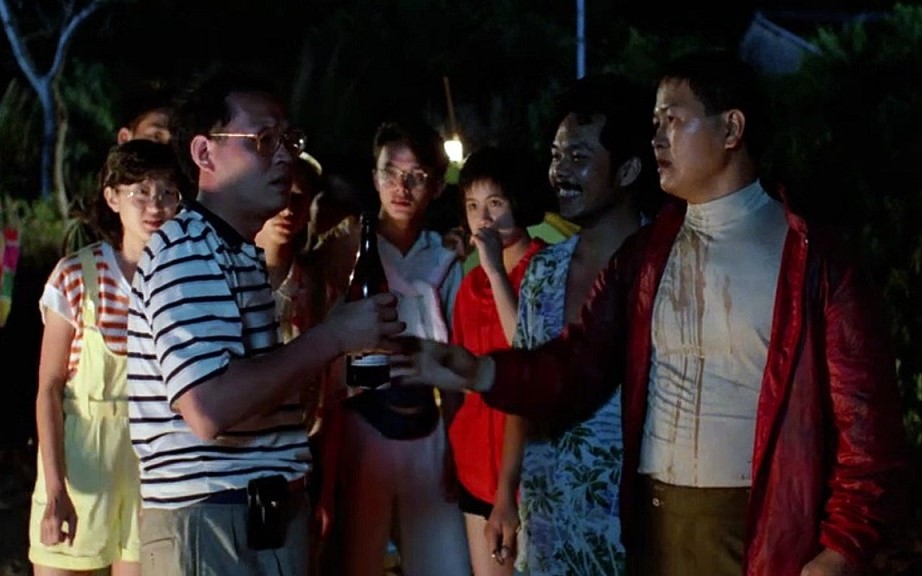
When they see young Phyllis (Hoi-Lun Au), they see her as a more suitable partner for simpleton Sam-Fat, and so their plans change. They invite themselves into the group, who initially tolerate their presence. Early scenes involve a lot of comedy, with the brothers having extreme traits and behaving in an exaggerated manner. Sam-Fat has a consistently running nose and is poked fun at for using his teeth to help open soda bottles (it is a strange but funny scene). Yet, brief flashes of violence soon appear. Mr. Cheung attempts to keep things calm and talk his way out of trouble, but tension soon rises as the brothers become more aggressive. The siblings ultimately go on the offensive and violence breaks out.
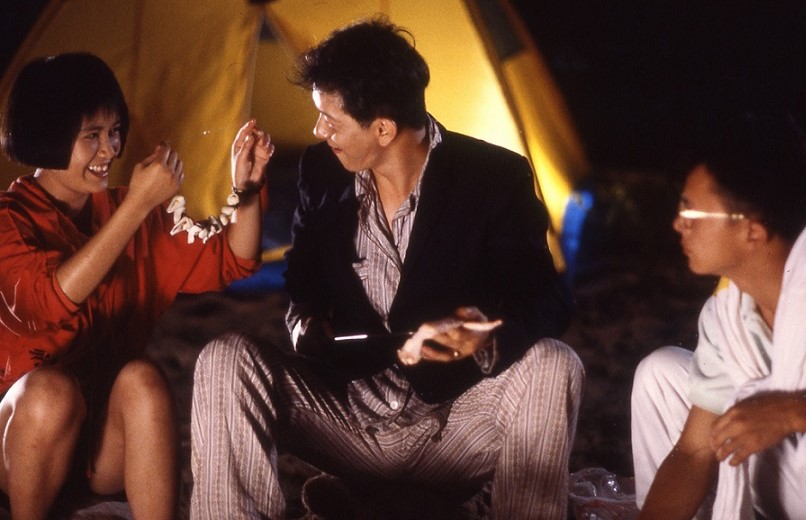
As mentioned, after a disturbing opening involving the three tormenting their captive, the film takes a sharp turn into comedy, with the teacher and kids enjoying their vacation. The humor and verbal jabs between the teens early on almost fools one into thinking they’re watching a broad comedy or horror parody. This is true even initially when the brothers appear. Yee-Fat bugs his eyes out and laughs maniacally, and Sam-Fat, the youngest and slowest sibling, follows Phyllis around like a puppy dog.
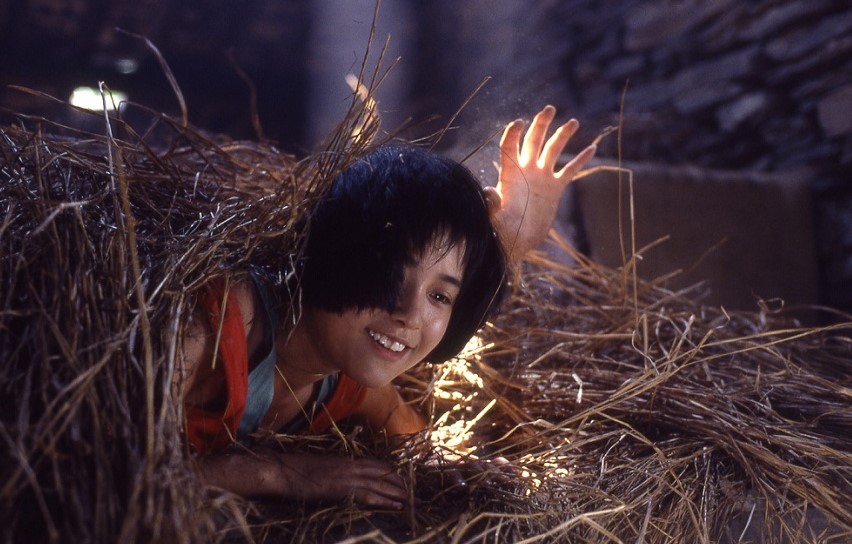
But it isn’t long before it all feels threatening. The visiting group tries to maintain the peace (for perhaps a bit too long), but the tone does change significantly. Nothing is explicitly shown, but there are numerous violent acts (including a sexual assault on the initial kidnapping victim). Mr. Cheung does realize that the group of brothers are going to kill and/or kidnap them, and tries to protect them from the onslaught.
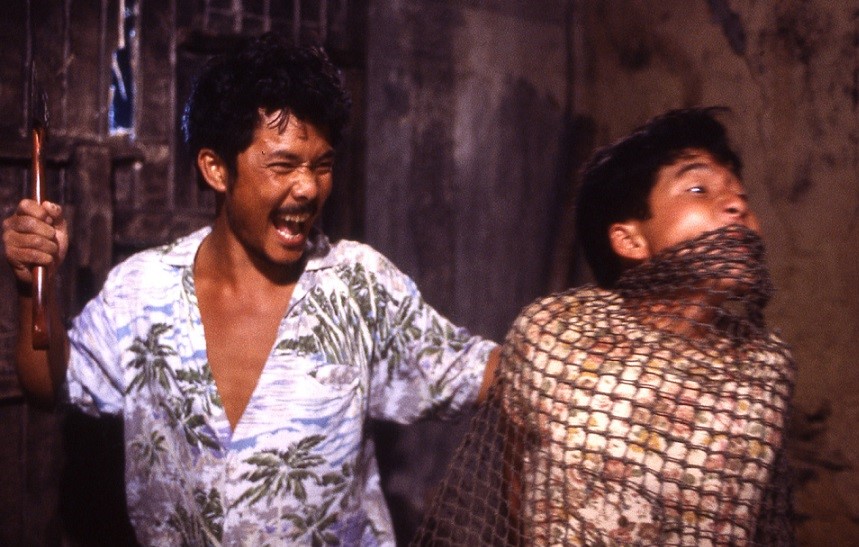
The attack scenes make up the final half-hour and are impressive. These villains use spikey sea urchins used as weapons, as well as battering rams, rusty blades and gasoline/flames and its intense. The visuals towards the end, involving slain characters laid out on a tree in the middle of a bog, is striking. And one big plus in the movie that is unusual for its era is that the women fight back effectively against their attackers. The teacher is ineffectual for long periods, and the teenage boys take a nasty beating, but Phyllis is a compelling character who, at times, goes toe-to-tie with the antagonists. In general, the ladies in this tale come off as far more capable than their male counterparts.
This is an odd picture that features some weird tonal shifts and surreal episodes, but it is surprisingly well-made and eventually delivers plenty of action that will intrigue and grip horror fans. You can see its American horror influences clearly in certain sections, but the filmmaker is delivering his own eccentric spin on them, making the movie a fascinating curiosity.
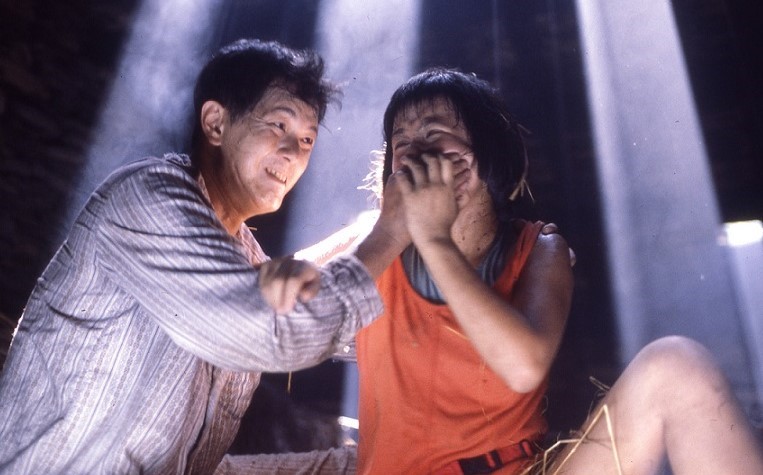
The image quality on the disc is shockingly strong. As bizarre as the story is, the movie ended up winning Best Cinematography at the Hong Kong cinema awards and a great deal of care was taken with the transfer. It received a 2K restoration and looks incredibly sharp. It doesn’t hurt that there is a lot of location photography in interesting locales filmed both during the day and at night. Light streams through cracks in the dilapidated buildings featured in the narrative, and later sections (including a vibrant dream sequence) involve striking red filters. The villains light multiple fires at night to try and push their prey out of hiding places, and it all pops off the screen. This is one of the best-looking discs I’ve seen from Eureka Entertainment.
Extras are also entertaining and informative. There are two great commentary tracks. One includes East Asian cinema expert Frank Djeng, who goes into the background of how the picture came together. He gives a lot of Hong Kong history that definitely adds a level of subtext to the movie. In particular, the speaker notes that this movie was definitely trying to deal with class and politics. There is a lot of mention on the radio of a government land development body moving in (they were a real organization formed with the Chinese government takeover of British Hong Kong territory arriving in the late 1990s), and the expert goes into what this all meant and how it ties into the behavior of the isolated family. There is also class conflict between the teacher and kids, who are from Hong Kong, and the family, who can be seen to a degree as Chinese mainlanders. All of the information helps one get a deeper understanding of what the filmmaker may have been trying to say in the picture.
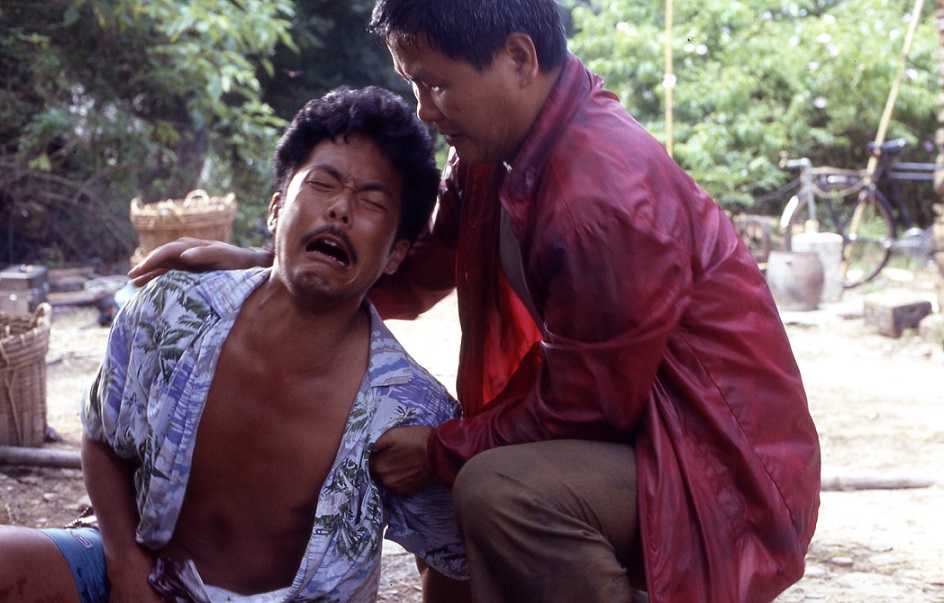
The genre cinema commentary track with Mike Leeder and Arne Venema is also a lot of fun. Conversational and humorous, they also talk about the unusual casting and some of the distinctive elements of the film. They aren’t afraid to poke good-natured fun at some of the oddities in the story and situations, while also offering great insight into the production.
There is also an interview with Tony Rayns on the picture. Again, he gives history into what inspired the movie and its references. It does seem that D & B Films started as a company making interesting and uncommercial projects that were critical hits. Eventually, they realized that to survive, they also had to adapt and create more films that would find greater box office success with the general public. He does note that this oddball effort does offer some twists on the horror formula and surprises at points, deviating at times from the slasher film formula. Again, viewers will learn a great deal about the Hong Kong film industry during this talk.
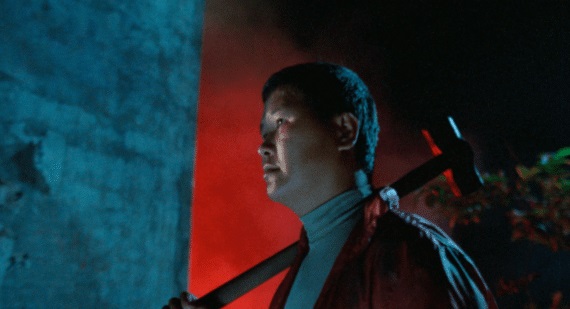
Another bonus is an interview with director Po-Chih Leong from 2023 following a screening of the movie with an enthusiastic crowd. The filmmaker talks about the unusual production. He notes that while Hung and others are listed as producers, they were not involved directly in the picture. Leong talks about some of the names behind the scenes and how they were involved (one notable actress is listed, and it turns out that she helped in finding and casting the youngsters in the picture), as well as the difficulty in shooting on location, but also how much fun it was. Despite being in his late 80s, Leong is spry and very funny. He’s also still working in various capacities, hoping to put together more film projects in the coming years.
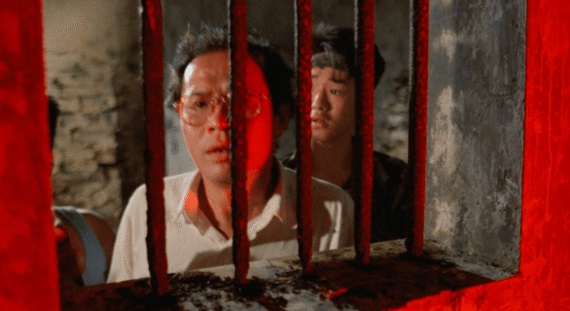
The Island is one of the more obscure and odd genre films you’re likely to see. That means it’s wonderful that Eureka Entertainment have done such a great job transferring it to Blu-ray. It looks incredible and will definitely make a lasting impression on anyone interested in it. If you are a fan of 1970s and 1980s horror titles like The Hills Have Eyes and don’t mind seeing a very bizarre spin on the formula, you should definitely pick it up!


